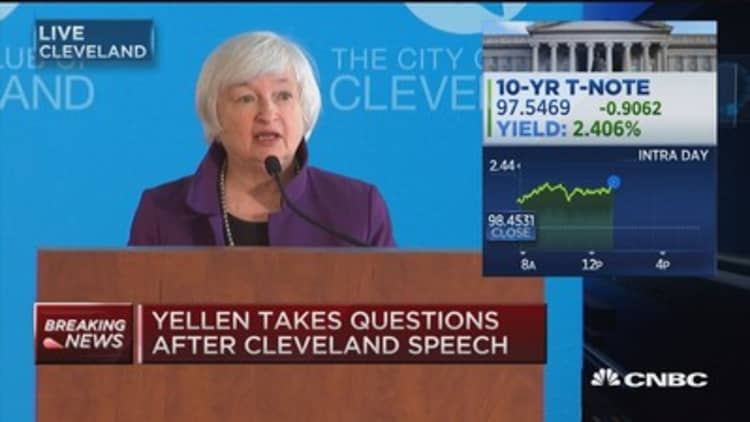
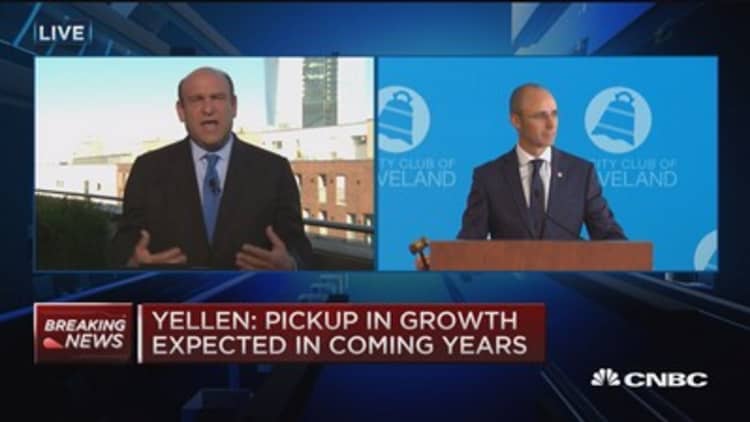
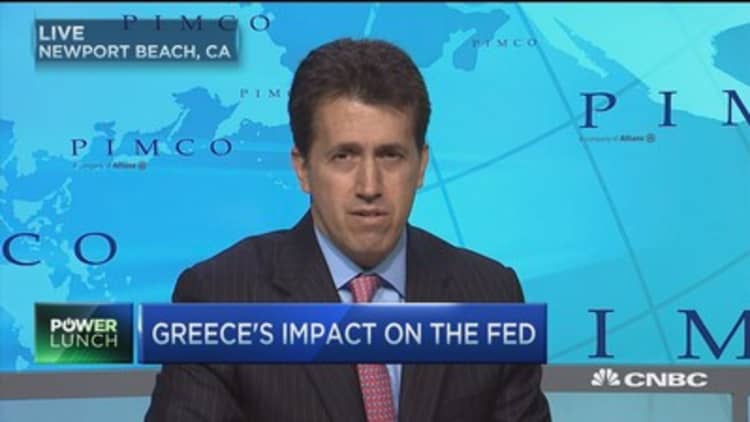
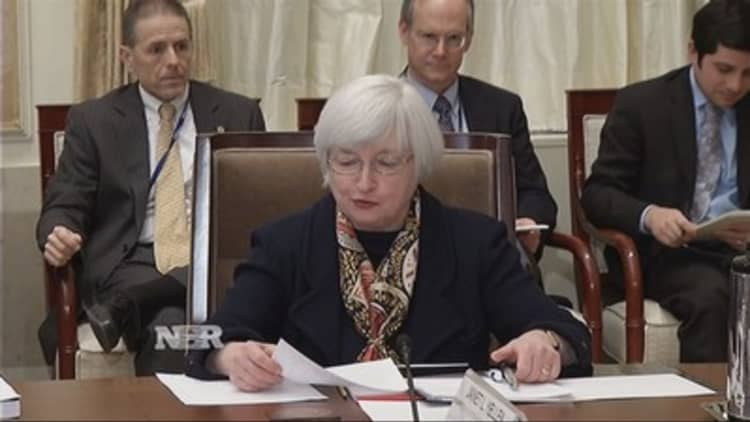
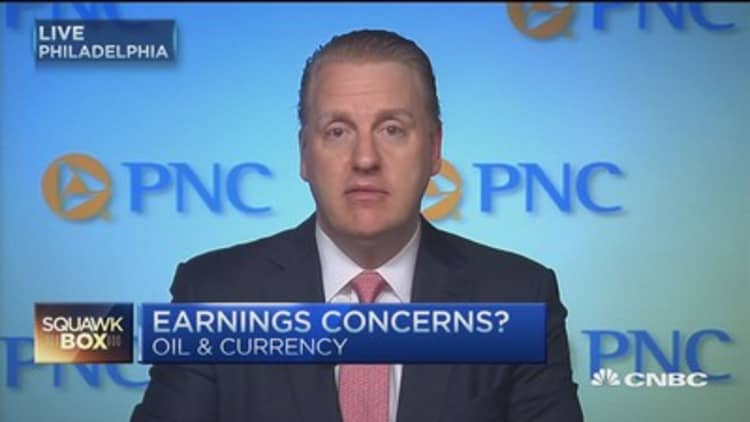
As Wall Street frets over when the first interest rate hike in nine years will come, Federal Reserve Chair Janet Yellen is sticking to the script.
In a speech delivered Friday to the City Club of Cleveland, the U.S. central bank chief reiterated familiar Fed talking points: The economy is improving, unemployment is dropping, inflation is getting close to healthy levels.
However, she left herself and her fellow Fed Open Market Committee members enough wiggle room on rates, which probably, but not definitely will be increasing before year's end.
"Based on my outlook, I expect that it will be appropriate at some point later this year to take the first step to raise the federal funds rate and thus begin normalizing monetary policy," Yellen said in prepared remarks. "I want to emphasize that the course of the economy and inflation remains highly uncertain, and unanticipated developments could delay or accelerate this first step."
Market participants have vacillated over expectations for the first hike. Just a few months ago, June was in play. However, in recent days, with the U.S. economic growth uneven and a variety of geopolitical obstacles on the landscape, traders in futures markets have pushed out the date.
Expectations on the Chicago Mercantile Exchange are now for the Fed to hold off a hike until January 2016, though many doubt it will take that long.
Yellen's remarks helped reinforce a 2015 timetable, but she also gave reason to believe she is not completely sold on where the economy stands.
"It is my judgment that the lower level of the unemployment rate today probably does not fully capture the extent of slack remaining in the labor market—in other words, how far away we are from a full-employment economy," she said.
Job creation was a bit below expectations in June. The unemployment rate dropped to 5.3 percent, but was largely due to a marked decline in the labor force participation rate, which is at its lowest level in about 37 years.
More importantly from the Fed's perspective, wage growth has been muted. Average hourly earnings were flat for the month and are rising at just a 2 percent annualized basis, according to the Labor Department.
"Looking further ahead, I think that many of the fundamental factors underlying U.S. economic activity are solid and should lead to some pickup in the pace of economic growth in the coming years," Yellen said. "In particular, I anticipate that employment will continue to expand and the unemployment rate will decline further."


